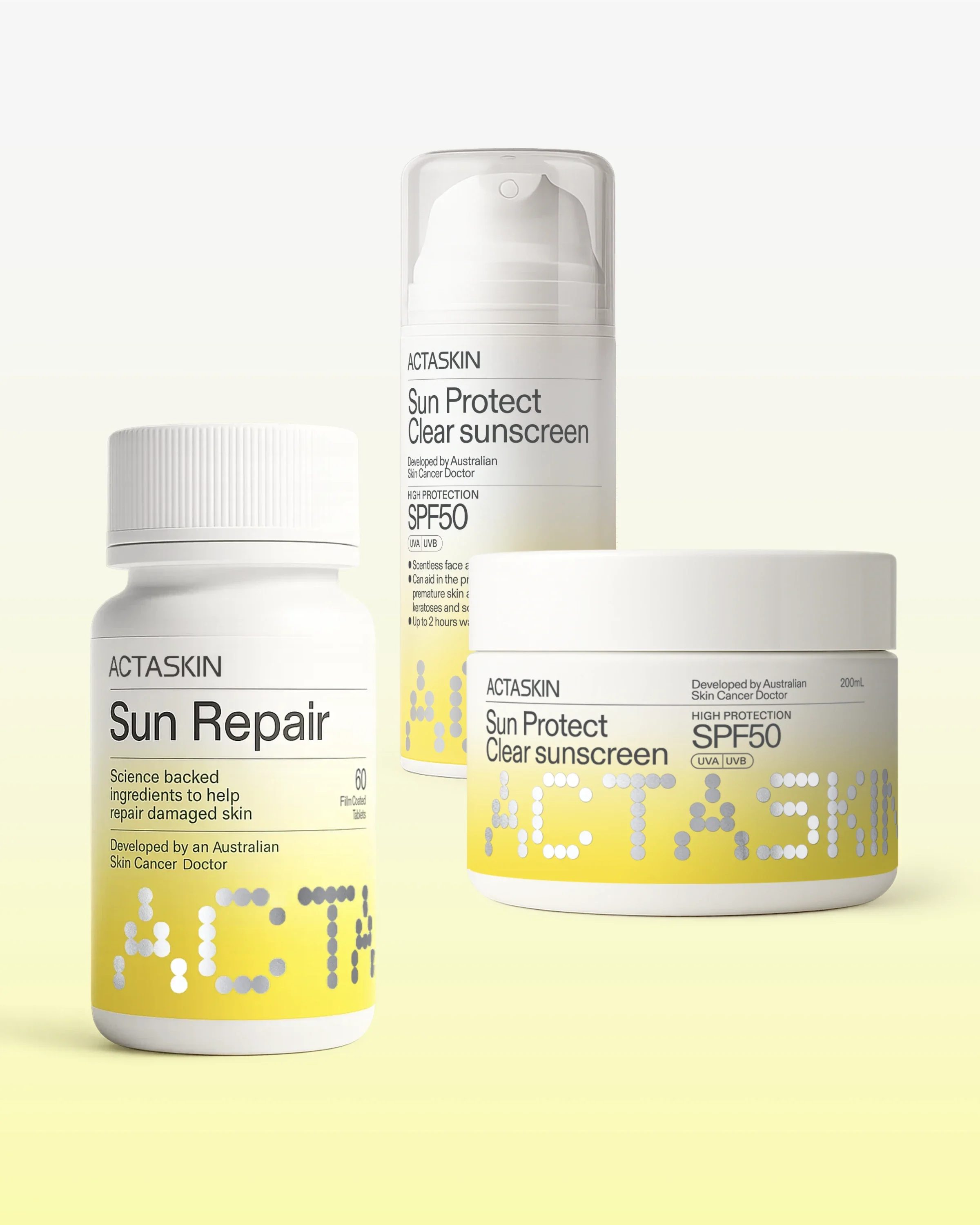You might have seen the headlines recently claiming that daily sunscreen use causes Vitamin D deficiency.
Here’s what you actually need to know.
A well-run study - but context matters
First, credit where it’s due. This was a well-designed study, and the researchers deserve recognition. But, as always, the real story is in the details. Looking more closely, the study included people from right across Australia’s east coast - from Townsville in the north to Hobart in the south, and everywhere in between.
Almost half of participants lived in lower-UV regions like Melbourne and Hobart, and about two-thirds were women. Around ten percent said they never burn, which likely reflects darker skin types, often from non-European ancestry, who already have a higher tendency toward Vitamin D deficiency.
That’s what we mean when we say the study is representative at a population level. It paints a broad picture of what’s happening across a diverse group of Australians - but it doesn’t necessarily tell you what would happen to you as an individual. We each have our own mix of skin type, genetics, lifestyle, and sun exposure. So, while the study gives valuable insights for national health guidelines, it doesn’t predict exactly how daily sunscreen use will affect your Vitamin D levels.
What the study actually found
The trial followed about 600 people. Half were asked to wear sunscreen every day, while the other half continued with their usual habits. Researchers measured everyone’s Vitamin D levels before and after summer, and again the following winter. By the end of the study, the sunscreen group showed only a 17% higher rate of Vitamin D deficiency, but it’s worth noting that around one-third of participants were already deficient before the study even began.
In other words, most of the difference came down to people who were starting from a lower baseline, not necessarily because of the sunscreen itself.
What this means for you
Your Vitamin D levels are influenced by many factors: where you live, your skin tone, how much time you spend outdoors, and even your genetics. It’s never as simple as one cause or one solution. Studies like this are incredibly useful when setting public health guidelines, but they don’t always translate directly to the individual.
What’s true on average for a large group of Australians might not reflect your personal situation. That’s why good medicine always looks at the person in front of you, not just the population data.
Dont ditch your sunscreen
this should not be used as a reason to stop wearing sunscreen.
Here’s the most important part: Even the study’s authors stressed that we shouldn't stop wearing sunscreen. Sunscreen remains critical in reducing the risk of skin cancers and melanoma - something far more dangerous than a small seasonal dip in Vitamin D.
At Actaskin, we’re big believers in balance. Protect your skin daily. Get gentle sun exposure when you can. And if you’re concerned, ask your GP for a quick Vitamin D test.
Dr. Austin Lang MBBS, BSc, FRACGP, MMed (Skin Cancer) is a Brisbane-based skin cancer expert practicing at Brisbane Skin Cancer in Coorparoo. He has performed more than 3,000 procedures and is highly trained in advanced reconstructive surgery, scar optimisation, and minimally invasive techniques. Austin combines world-class expertise with a patient-first approach to achieve the best outcomes for his patients.
Reference
Giblin, L., et al. Effect of Daily Sunscreen Use on Vitamin D Concentrations: A Randomized Clinical Trial. JAMA Dermatology, 2025.



